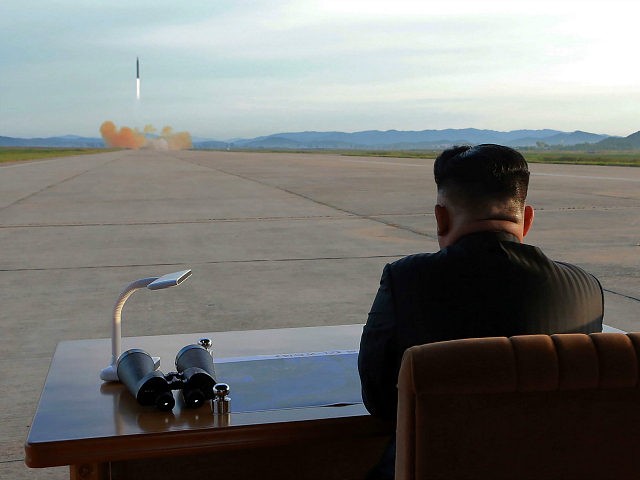South Korea issued an unusually stern warning to North Korea on Tuesday as a national security adviser to President Moon Jae-in said it would be a “big disaster” and “catastrophic” to diplomacy if Pyongyang conducted another provocative missile test to gain leverage in negotiations.
Retired professor Moon Chung-in made these remarks at a panel discussion in Seoul, where he also criticized the United States for making “excessive demands” and adopting an “all-or-nothing” strategy to force North Korea to fully denuclearize before sanctions relief is granted.
“The United States made excessive demands on North Korea to reach a big deal, whereas Chairman Kim was overconfident that he could persuade Trump to get what he wants for closing down the Yongbyon main nuclear complex,” Moon said, referring to the collapse of talks in Hanoi between U.S. President Donald Trump and North Korean dictator Kim Jong-un.
Moon said a speech given by American envoy Stephen Biegun before the second Trump-Kim summit gave him the “strong impression” that America would pursue a “realistic” strategy of offering incremental incentives as rewards for positive steps by North Korea, but “at the summit, they actually took an all-or-nothing position.”
For his part, Biegun said on Monday that he believed “diplomacy was still very much alive” even as North Korea makes ominous preparations at its major rocket launch site.
This is something of a role reversal between the U.S. and South Korea. President Moon Jae-in staked his presidency on diplomatic engagement with Pyongyang and has been eager to protect and expand the gains made through diplomacy, but the Trump administration presently seems less alarmed by the possibility of a new North Korean missile launch than the South Koreans are.
Adviser Moon Chung-un’s concerns were repeated on Tuesday by a spokesman for the South Korean Foreign Ministry, who expressed concerns about activity at North Korea’s launch site and hoped Pyongyang will “make a wise decision” that “would benefit all.”
The problem with Moon’s analysis is that North Korea’s constant cheating and sanctions-busting support the Trump administration’s determination to achieve full denuclearization before concessions are formally made. The South Korean adviser himself noted that Kim Jong-un came to Hanoi thinking he could extract significant concessions in exchange for an unsatisfying shutdown of the Yongbyon facility.
The U.N. Security Council’s latest report on North Korea found evidence of sanctions evasion on a massive scale, with even North Korean arms sales to other unpleasant regimes continuing apace.
The Security Council report also found North Korea is continuing to covertly develop nuclear warheads and ballistic missiles in defiance of U.N. resolutions, conducting much of its illicit activity in civilian factories and building a new underground nuclear facility near the one Kim Jong-un offered to close in exchange for sanctions relief.
The Trump administration has missed no opportunity since the Hanoi summit to state that diplomacy is still working and North Korea will be welcomed back to the negotiating table, but it has been remarkably focused on its originally stated goal of complete denuclearization before sanctions are lifted, long past the point where previous administrations made concessions to Pyongyang and in defiance of expectations that Trump would do anything to sign a headline-friendly deal with Kim in Hanoi.

COMMENTS
Please let us know if you're having issues with commenting.